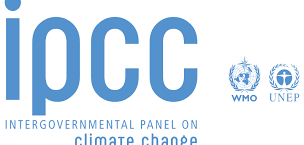
The 26th United Nations Climate Change Conference, COP26, recently ended, with the aim of uniting countries in the fight against climate change. Climate change issues are likely to hit African countries the hardest, although the continent is least responsible for climate change.
É What was the African Program on the occasion of COP26?
According to the African Group of negotiators , the main points of the African agenda can be summarized as follows.
- Climate responsibility: Developed countries must take responsibility and lead the way to achieve net zero emissions by 2050.
Financing the fight against climate change and adaptation: Developed countries must mobilize sufficient funds to finance adaptation in developing countries affected by climate change. A financial architecture and transparency mechanisms should be put in place.
- Technology transfer and capacity building: Developed countries need to transfer sound environmental technologies to African countries for effective adaptation, mitigation and transition to climate change.
- Long-term climate finance: Developed countries should honor their commitment to 100 billion per year by 2020 and to agree to long-term climate financing.
What points of the agenda were they taken?
It's hard to say. There were a lot of announcements. For example, many countries have agreed to “phase out” fossil fuels in general. These are only promises and will remain unless they are included in their contributions determined at national level as official qu'engagements for complete reporting and accountability. If they do, it will put the world on track for a better estimate of 2.4 ° C of global warming instead of 2.7 ° C than it was before COP26.
We are a long way from net zero emissions, which is a carbon neutral world, by 2050.
The report of the g roup work 1 IPCC recently released on the basis of physical science of climate change is clear. Unless there are immediate, rapid and large-scale reductions in greenhouse gas emissions, limiting warming to nearly 1.5 ° C or even 2 ° C will be out of reach. This means that considerable efforts are needed to reduce emissions rapidly, especially from developed countries.
Consequently, the level of commitments made at COP26 is a total failure.
With regard to climate adaptation, progress has been made. The annual commitment of $ 100 billion from developed countries to support adaptation and mitigation in least developed countries has not been met. In 2019, total funding for the fight against climate change was estimated at $ 79.6 billion, of which a quarter was spent on adaptation. Now in Glasgow climate pact , it is agreed that developed countries will at least double their collective provision of climate finance for adaptation in developing countries by the level of 2019 by 2025. This will represent about 40 billion dollars. However, this is insufficient for the desired balance of 50:50 between adaptation and attenuation. Right now it's 40 for adaptation and 60 for mitigation.
Developed countries refuse to take any historical responsibility for the cost of loss and damage caused by the impacts of climate change, such as hurricanes and sea level rise.
Therefore, the financial result of COP26 is a glass half full, but it is not far from a failure.
With what are the African countries income program?
It is difficult to determine because there was a lot of compromise. But they certainly didn't come back with their own full agenda. Numerous obstacles due to high costs, the pandemic, travel restrictions and other logistical challenges have resulted in African voices being marginalized.
How much damage will African countries suffer?
A lot. The damage could well be enormous. Africa is home to most of the least developed countries. These countries are not well equipped in terms of funds and infrastructure to deal with the adverse effects of climate change. The report of the IPCC recently released indicates in its Chapter 12 with great confidence that the increases in extreme temperatures including heat stress and heat waves, changes in coastlines, including coastal flooding, erosion and sea level rise, and extreme rainfall will be common in Africa by mid-century.
The report also states that each fraction of a degree is important because it leads to noticeable changes in these hazards. At present, after Glasgow, the best estimate is that the world is on track to reach 2.4 ° C of global warming. It is very far from 1.5 ° C. Africa must raise its voice so as to be placed at the center of the negotiation process.
Is there room for imp lioration and w here?
Contributions and national commitments to COP26 are purely voluntary. The agreement is not binding. There are a lot of improvements to be made if the COP wants a stronger deal.
Africa needs more coordination and more science. I think the African Union Commission and other continental political bodies need to be more involved in the process.
The continent must also fund the science of climate change. For example, it is difficult to say what would be the impact of global warming of 1.5 ° C, 2 ° C, 3 ° C, 4 ° C, on sectors such as energy, water resources, agriculture, infrastructure and health. How these sectors will react to these levels of global warming remains to be understood.
Sources:
 Mouhamadou Bamba Sylla AIMS Canada Research Chair in climate change science, African Institute for Mathematical Sciences
Mouhamadou Bamba Sylla AIMS Canada Research Chair in climate change science, African Institute for Mathematical Sciences
Posted on 2021-11-23 16:30








Comments